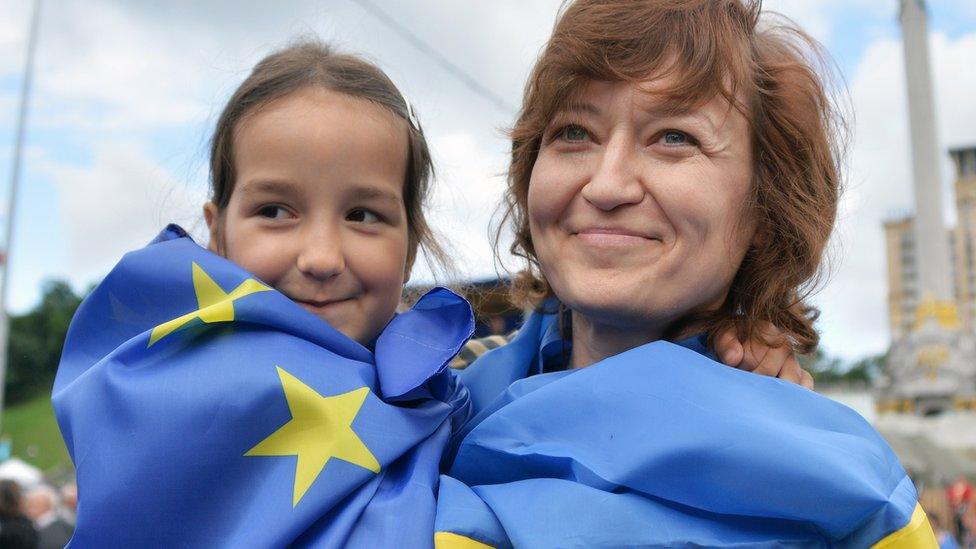Netherlands vote on Ukraine cheers anti-EU camp
- Published
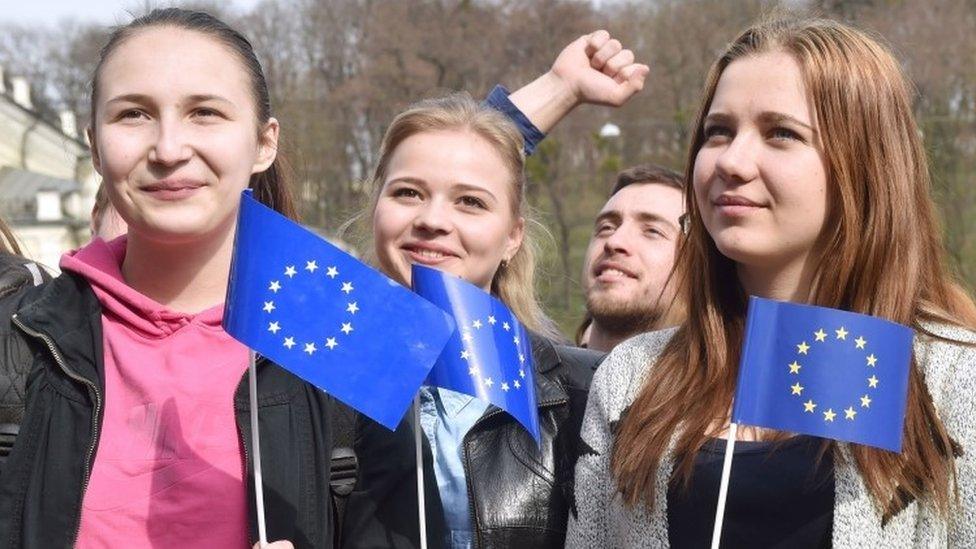
These students in Ukraine are likely to be disappointed by the outcome of the vote in the Netherlands
Although officially the Netherlands has rejected a landmark deal between the EU and Ukraine, in reality the issues that dominated this campaign were much wider.
The referendum was triggered by the Eurosceptic movement which used a new law designed to promote democracy to force a vote by gathering enough signatures on a petition.
From the start, activists said this was a chance for voters in the country to express frustration at the EU, in particular what they see as its desire to expand despite democratic shortcomings.
Although the turnout was only narrowly above the 30% required to validate the result it has been hailed as a significant Eurosceptic victory.
One "No" campaigner at a results party in Amsterdam described it as a "slap in the face of the European monster".
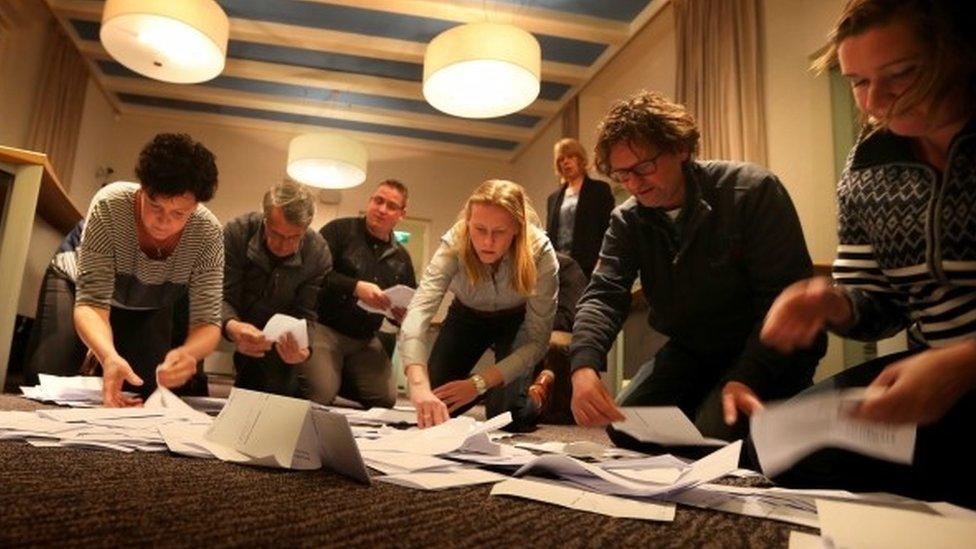
Some say the multiple layers to this referendum means the result cannot be seen as a true reflection of the scale of Euroscepticism in the Netherlands
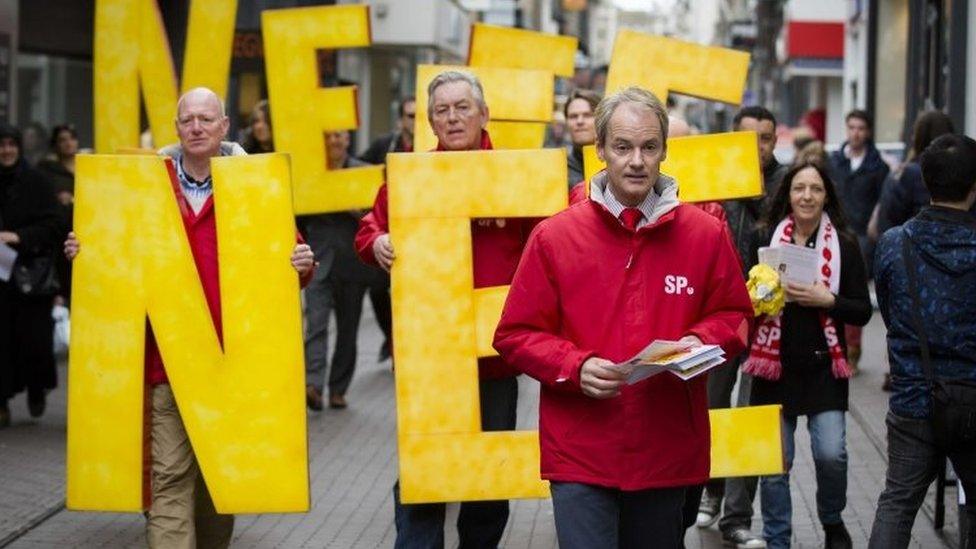
Eurosceptics have been accused by their critics of hijacking a debate which should have been about relations between Ukraine, Russia and Europe
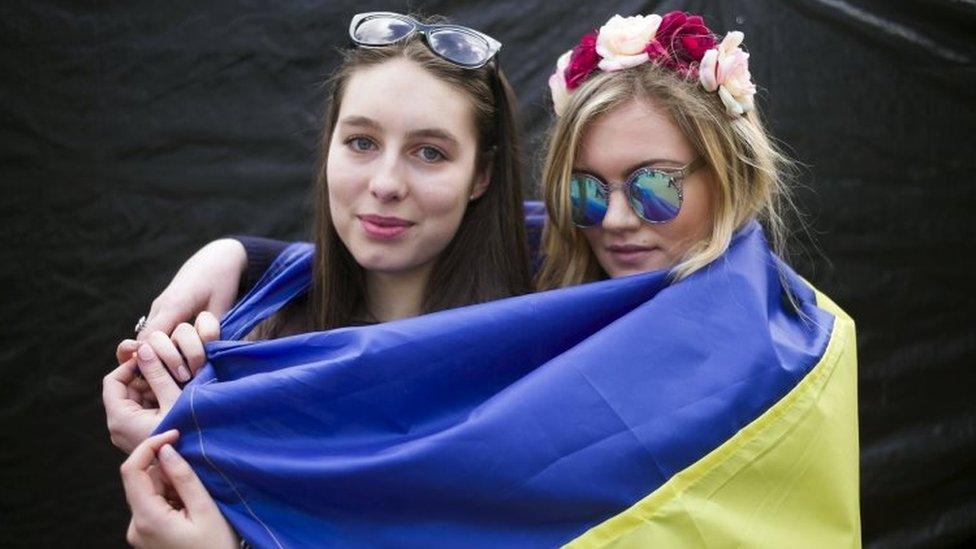
Ukrainians living in The Hague demonstrated in support of the deal with the EU
In the UK Brexit activists were quick to claim the result showed anti-EU sentiment is growing despite the fact two-thirds of Dutch voters chose not to participate.
While a vote in the Netherlands may not widely shape public opinion in the UK, it will embolden those campaigning for the UK to leave the EU.
They will argue this result proves public concern over sovereignty and accountability is shared beyond Britain.
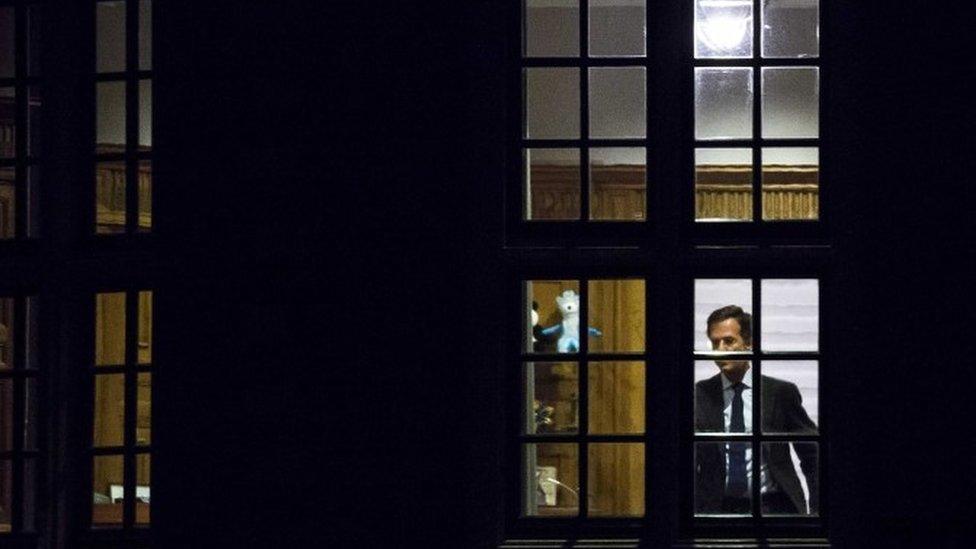
Netherlands Prime Minister Mark Rutte has signalled the result of the referendum would not be ignored and he would now open discussions with EU leaders about how to proceed
But Netherlands voters were not asked to simply pass judgement on the EU, and throughout the campaign those promoting a "Yes" vote were frustrated by what they saw as attempts by Eurosceptics to hijack a debate which should have been about relations between Ukraine, Russia and Europe.
Some say the multiple layers to this referendum means the result cannot be seen as a true reflection of the scale of euroscepticism in the Netherlands.
Nonetheless the country is traditionally a stronghold of European integration, and the rejection of this deal will rattle the nerves of European leaders who are already struggling to maintain unity in the face of economic instability and the migrant crisis.
The impact of this on the Ukraine agreement is not yet clear. Although the referendum was not binding, Prime Minister Mark Rutte signalled the result would not be ignored and he would now open discussions with EU leaders about how to proceed.
Whatever the practical consequences, this referendum will be perceived and paraded by Eurosceptics as a symbol of growing support for their movement - pertinent timing as the UK prepares to decide its future relationship with the EU.
- Published7 April 2016
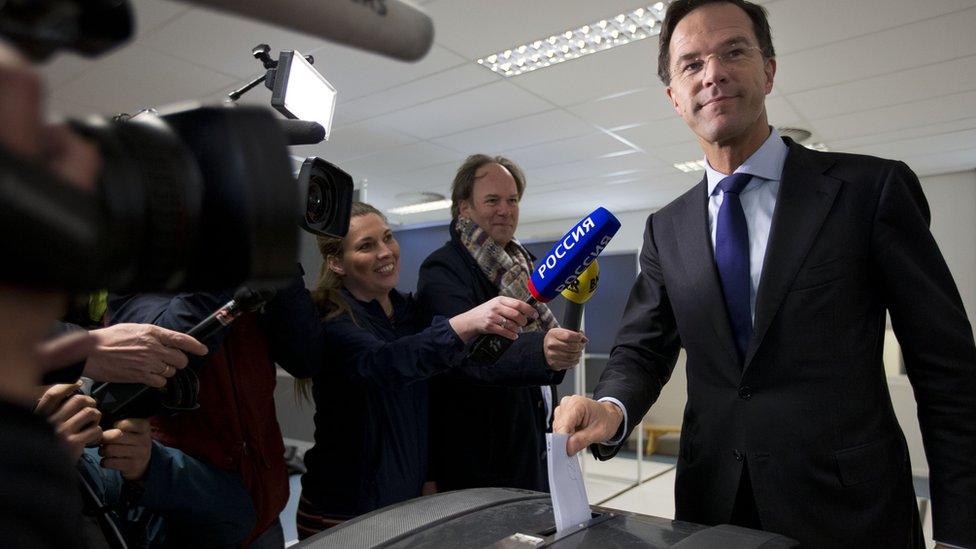
- Published12 March 2016
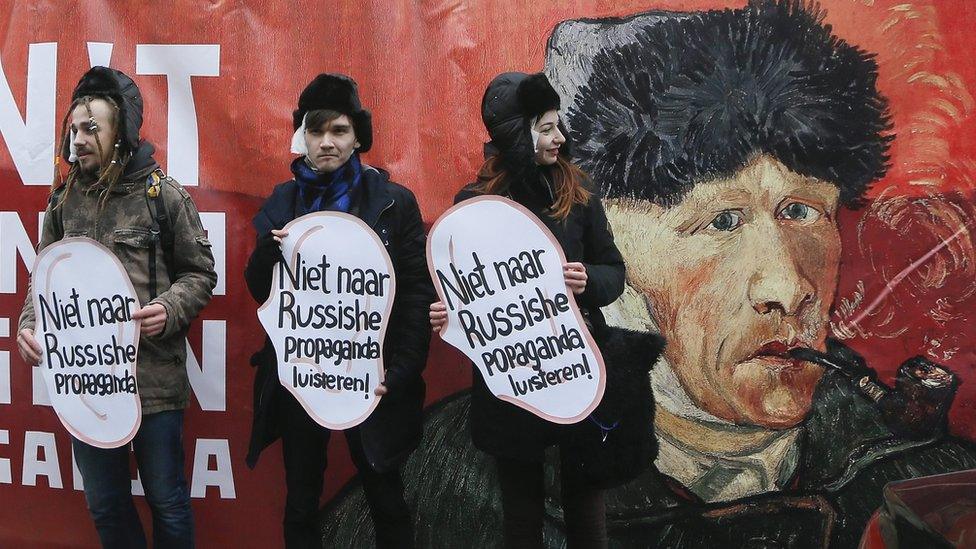
- Published14 October 2015
